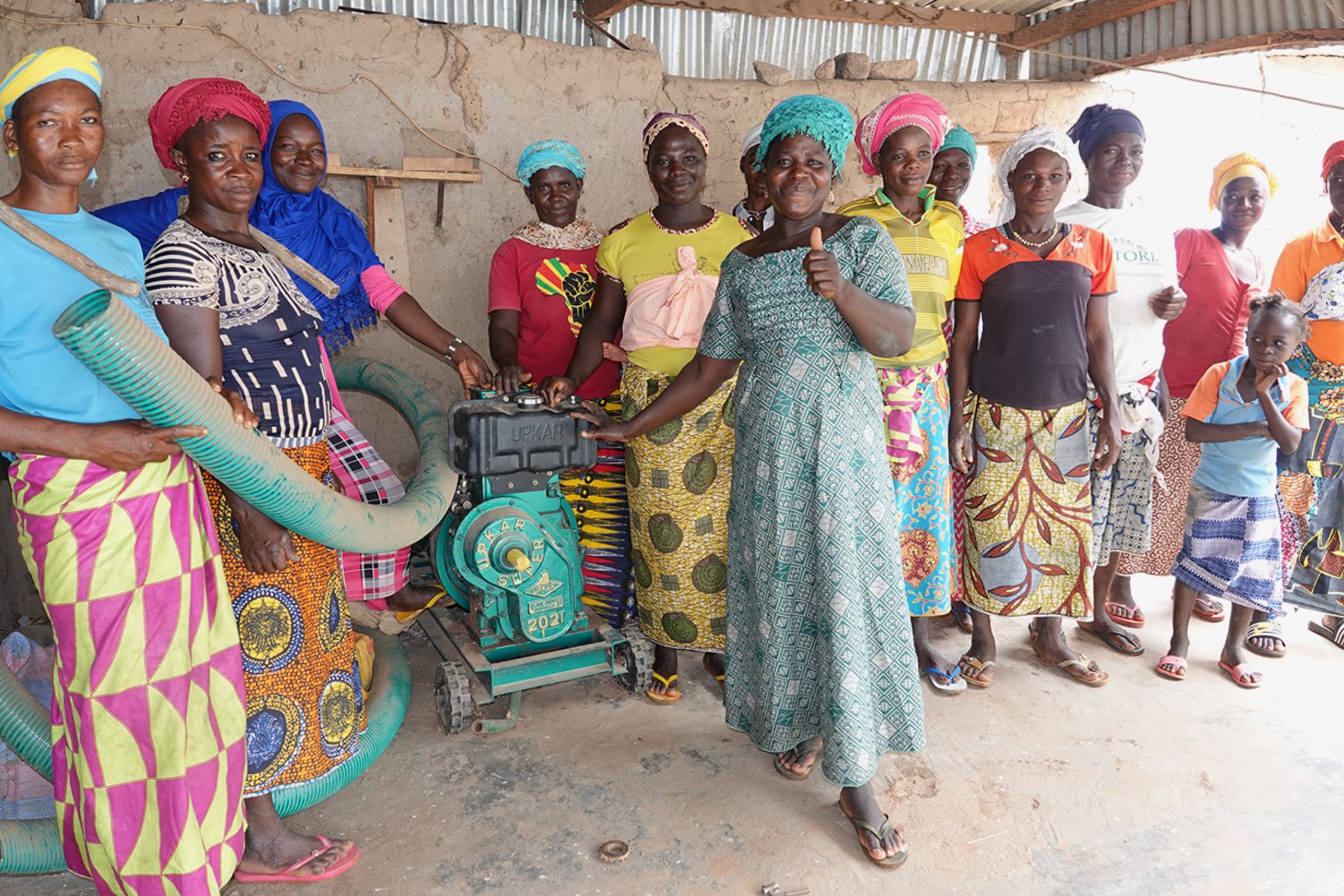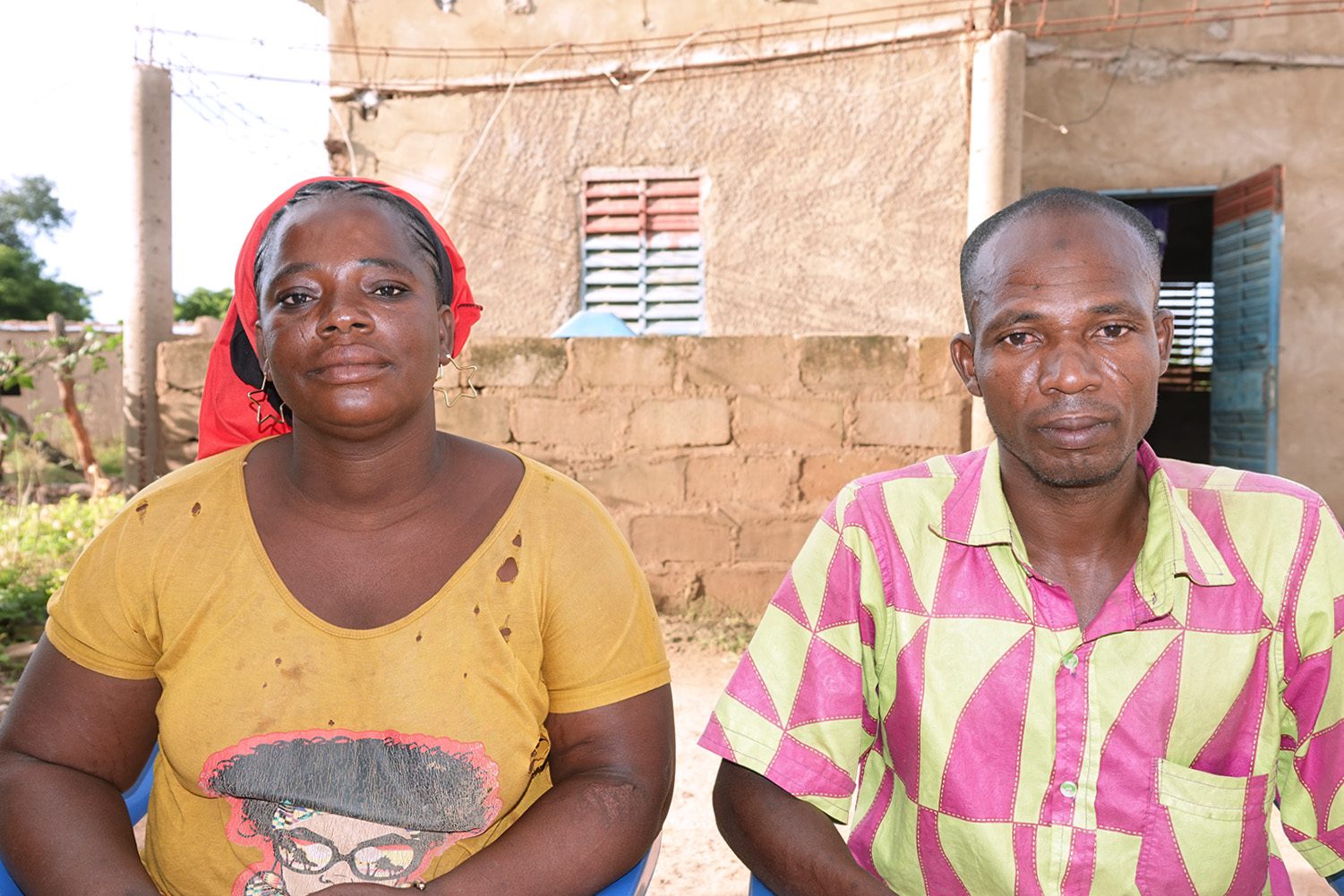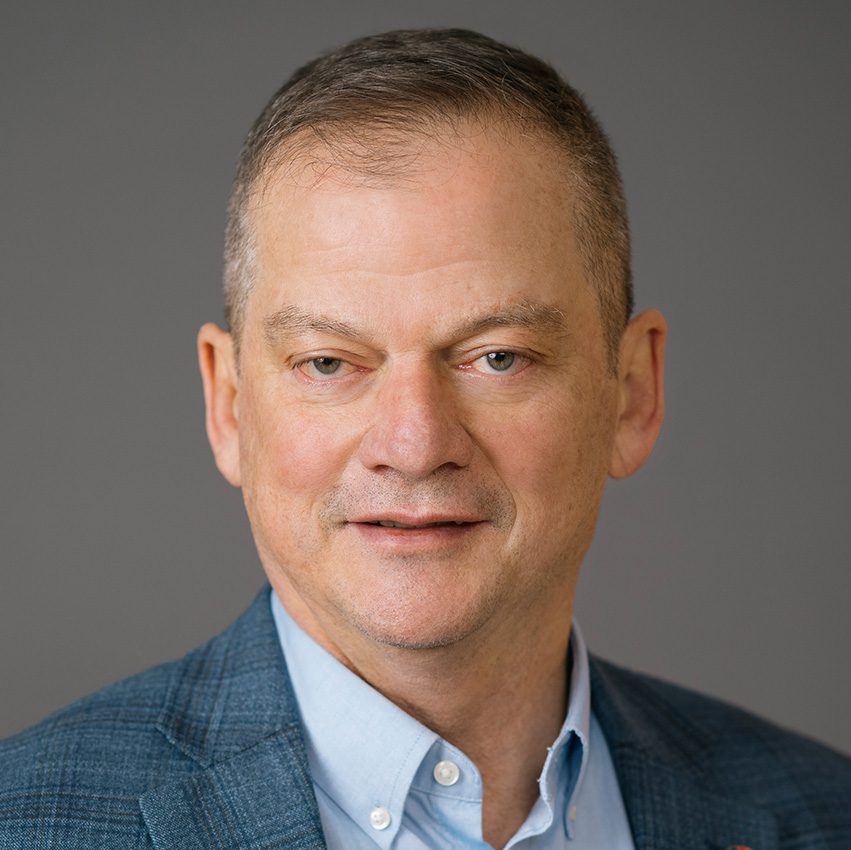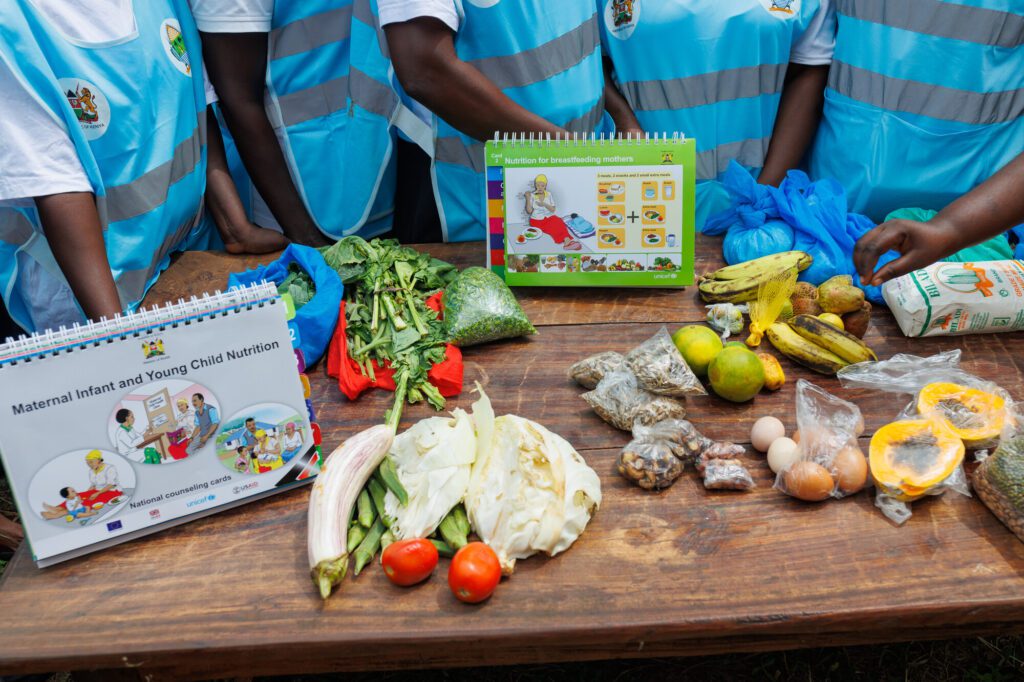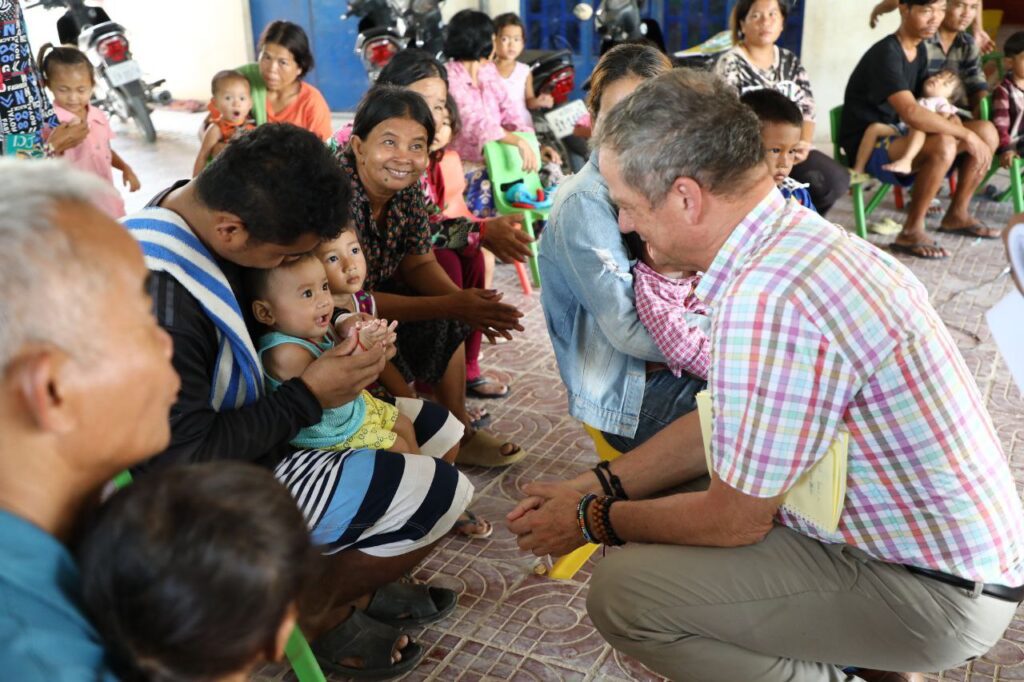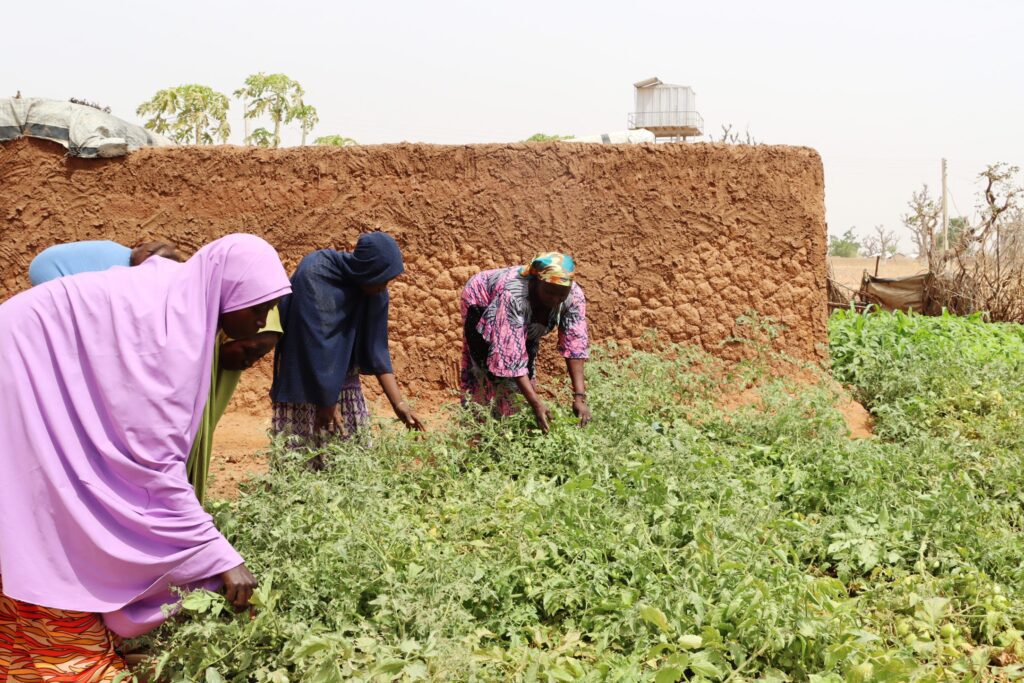By Helen Keller Intl |

We recently spoke to Chum Senveasna, Program Manager for Helen Keller Intl in Cambodia. Senveasna has supported our work on nutrition since 2016. He’s now leading our efforts to support breastfeeding mothers and improve nutrition for women and children across the country.
What are the current recommendations for breastfeeding?
Global health bodies including the World Health Organization have three main recommendations for breastfeeding.
- Initiate of breastfeeding within one hour of birth
- Exclusively breastfeeding for the first six months of a child’s life
- Introduce nutritious complementary solid foods at six months of age with continued breastfeeding through two years
Why is exclusive breastfeeding so important during the first six months?
Evidence has shown many benefits of breastfeeding for both babies and mothers. For babies, chief among these is protection against infections when breastfeeding is started within one hour of birth, which helps reduce the risk of newborn mortality. Children who are breastfeed are less likely to be overweight or obese, perform better on intelligence tests, and have better school attendance. It’s even associated with higher incomes as an adult. Breastfeeding also supports the wellbeing of mothers by reducing the risks for breast and ovarian cancer.
What are some of the challenges women face when breastfeeding in Cambodia?
One of the major challenges is a lack of awareness of breastfeeding practices, especially in rural areas. There is also aggressive marketing of breastmilk substitutes, especially on social media, which contributes to misperceptions about the benefits of formula over breastmilk.
Maternity leave in Cambodia is only guaranteed for three months. So, it can be very challenging for women to continue breastfeeding once they have to go back to work. In addition, many people from rural areas migrate to cities or other countries to find work and have to leave their children with their grandparents.
Women also may not have the full support of their families. Before I started working with Helen Keller, I thought that breastfeeding was only a women’s responsibility, that I didn’t have a role to play because I am a man. Breastfeeding has such important benefits for women and babies that it benefits society. It is everyone’s responsibility, including men.
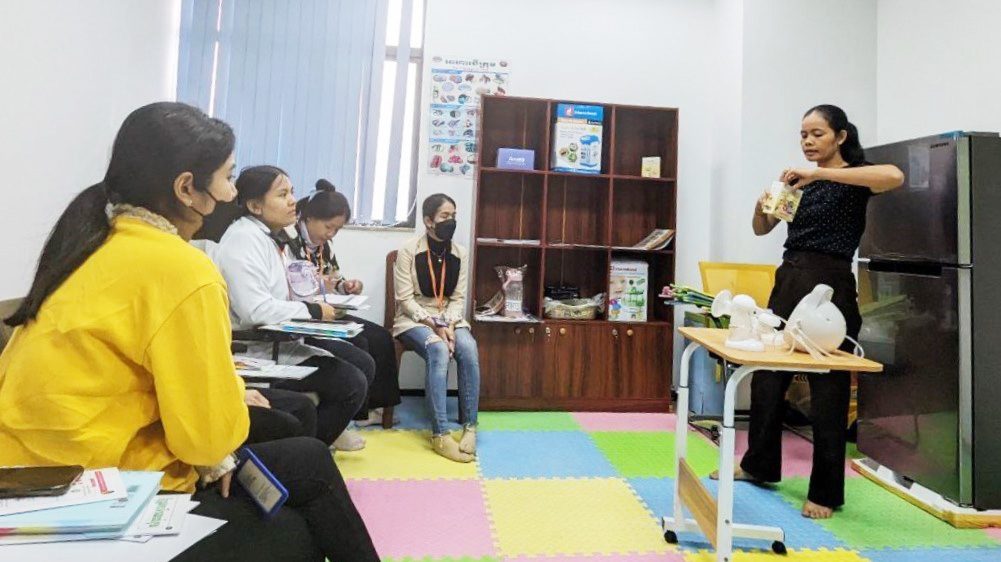
What is Helen Keller Intl doing to support breastfeeding mothers in Cambodia?
We’re working on a range of activities to support breastfeeding starting from birth. We train medical staff in the maternity wards of hospitals so that they can provide counseling to women who give birth there. We also promote awareness of breastfeeding’s benefits and education through direct engagement with local communities and social media campaigns.
Another major initiative is working with employers, including garment factories and government institutions, to increase support for breastfeeding in the workplace. Helen Keller educates employers on the benefits of breastfeeding, helps set up lactation rooms, and provides training and education for female workers. In addition, we’re advocating to the government to increase the length of maternity leave from three to six months.
Why is it so important to involve workplaces in these efforts?

In Cambodia, almost 80% of women in the labor force are of reproductive age. For working mothers, once their three-month maternity leave ends, they will need support in the workplace to continue breastfeeding.
Many employers think that supporting breastfeeding will only cost their business money. We’ve helped employers see that supporting breastfeeding in the workplace is beneficial for them and their employees. After our trainings, employee satisfaction has increased, and employers have shown an increased awareness in the benefits of breastfeeding and their willingness to support women.
What about when someone is unable to breastfeed? How is Helen Keller helping ensure babies still get the nutrition they need?
If a woman is having trouble, trained staff provide support to help them resolve the issue and, if needed, call on experts with the Ministry of Health.
Helen Keller is also helping the Cambodian government ensure the safety of breastmilk substitutes. In 2020, a number of babies got sick from baby formula that did not contain the nutrients it claimed to, and Helen Keller helped the government investigate and address the situation.
Today, we continue to work with the government to adopt international standards for breastmilk substitutes, conduct quality testing on all the brands of formula sold across Cambodia, train inspectors with the Ministry of Commerce to inspect the quality of formula currently in stores, and support the enforcement of strict regulations on the marketing and promotion of breastmilk substitutes.
Help ensure women and children get the nutrition they need.
Donate today!




